- Home |
- Student Perspective Fall 2021
Student Perspective Fall 2021
Welcome to Mississippi State University! We would be glad to hear from you by phone, email, or in person.
Meet some of our current students
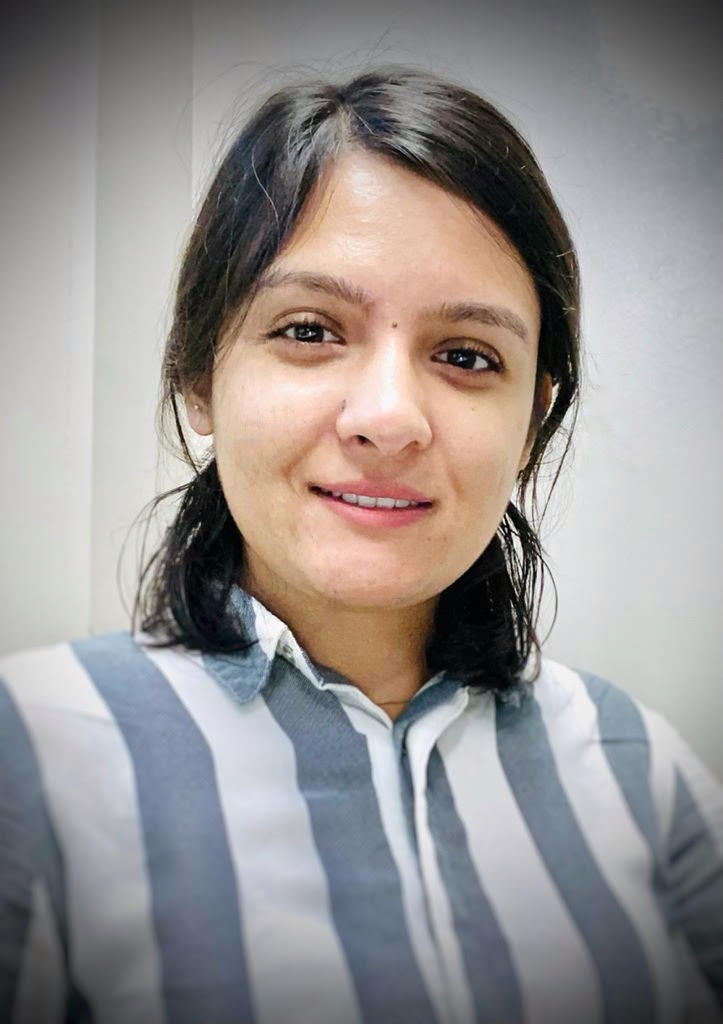
Shreeya Bhattarai
Shreeya Bhattarai, originally from Kathmandu, Nepal, received both her Bachelor’s and Master’s degrees in Environmental Engineering from Kathmandu University before coming to the U.S. this year to pursue a Ph.D. in Biological Engineering. Shreeya was drawn to MSU because of the Water and Environmental Research Laboratory in ABE, not to mention the temperate climate at MSU. She is interested in research on identification, analysis, and reduction of non-point source pollution.
“I love the teaching and learning environment of the classroom, especially when instructors are approachable, and students are interactive.”
Shreeya switched from Environmental to Biological Engineering to focus on the impacts of anthropogenic activity on the environment, especially water bodies. “Currently, I am studying the impact of non-point source pollutants that are running off from forested areas and pasturelands and eventually draining into the St. Louis Bay. I am fascinated by environmental modelling applications. Having been involved in various wet lab experiments and wastewater related projects, I imagine how various parameters and patterns can be simulated digitally.”
During her time at MSU, Shreeya has had multiple outstanding experiences. She has enjoyed being able to take some courses from professors in other departments as it has broadened her understanding of various subject areas. “I love the teaching and learning environment of the classroom, especially when instructors are approachable, and students are interactive.” Having come to MSU in Spring 2021, during the COVID-19 pandemic, Shreeya is now finally able to experience Starkville in a different light, with students back on campus. “I am happy to finally see people in the Student Union and on the Drill Field. I have also interacted with different student clubs and the programs that they have organized. On top of all that, I enjoy going to the Sanderson Center and walking around Chadwick Lake.” Shreeya also loves to experience campus through her interaction with students of different nationalities.
In ABE, Shreeya conducts her research under Dr. Parajuli. She attended a seminar he gave at a graduate conference on environment and sustainable development during her master’s program, and “now, as I am working under his direct supervision, I am grateful for his technical guidance and constant motivation on my career path.” The connection she has established with her advisor and with new friends has been her greatest experience at MSU. “Thousands of miles away from home, packing my whole life in two suitcases, my biggest struggle when I arrived at MSU was getting to know new people and becoming familiar with the university. Gradually, as I came across more international students, I felt lucky to be one of them as I had come so far chasing my dreams.”
Aside from her research, Shreeya has served as an executive member of the Society of Environmental Engineers in Nepal, in addition to traveling abroad. She traveled to Wuhan University in China as a part of a World Bank Fellowship to help build the future of water resources personnel. Shreeya hopes to remain involved in research and academia. “My major field of interest is the conservation of water bodies, where I can contribute to minimizing the pollution and improving water sources.”
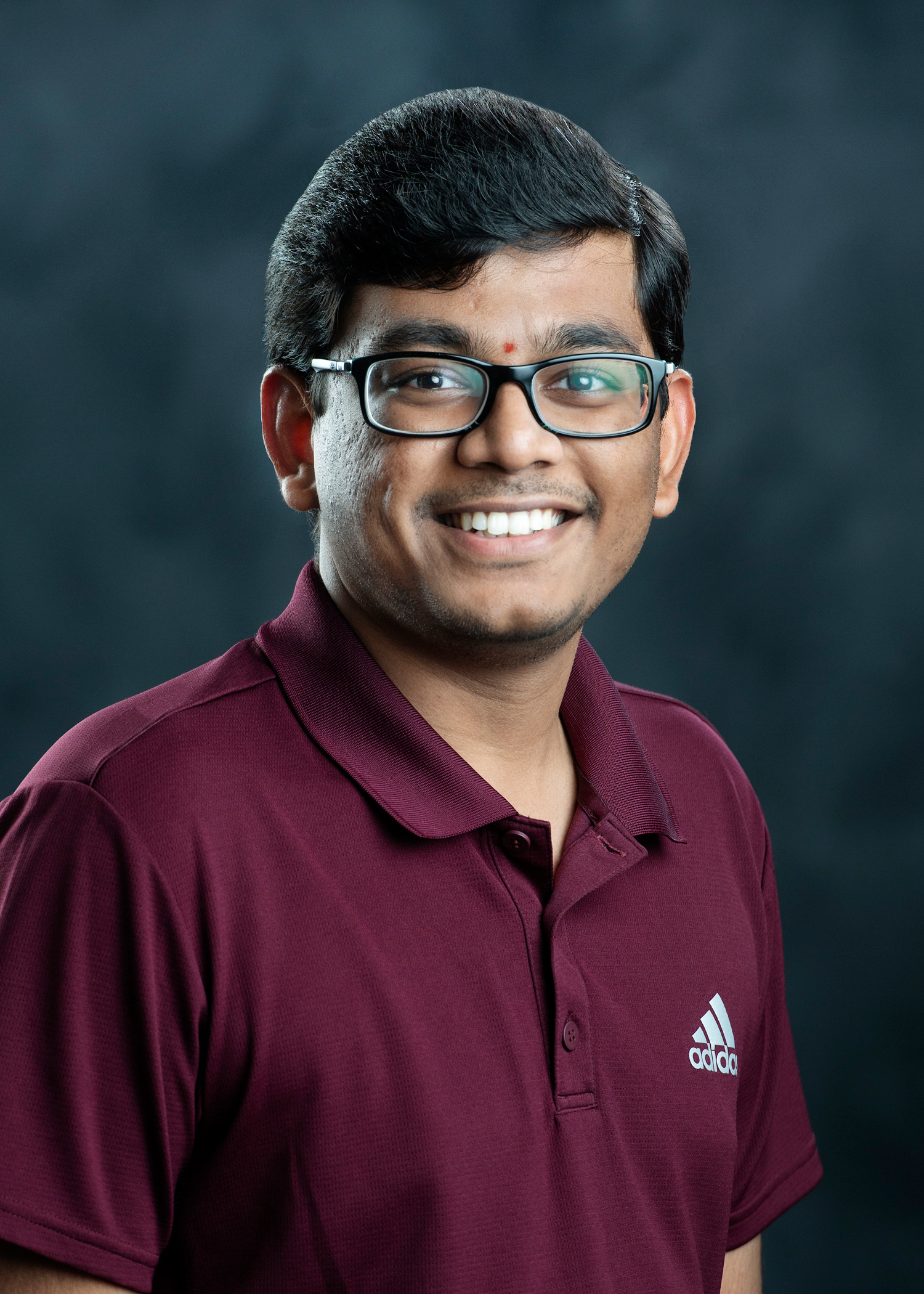
Vivek Venishetty
Vivek Venishetty is originally from the small town of Parkal, Telangana, in southern India. He has spent most of his adult life away from home in pursuit of higher education and work. He earned his undergraduate degree in Biotechnology at Motilal Nehru National Institute of Technology (MNNIT), a renowned university in India. During his senior year, Vivek worked on Bioremediation for water treatment as his undergraduate research project. His team succeeded in using bacterial isolates to reduce inorganic chromium in leather industry effluents.
“This project was my inspiration for pursuing a career in the field of water quality and becoming an expert in environmental engineering.”
After graduation, Vivek worked with the Professional Assistance for Development Action (PRADAN) group in some of the poorest areas of India. “I worked with tribal women and farmers to aid their socio-economic development by implementing sustainable drinking water systems in villages where people needed to walk miles for water, as well as on micro-irrigation systems for agriculture.” The systems his group implemented were solar powered, and the project inspired Vivek to learn more about agricultural best management practices to maintain water quality. This motivation ultimately led him to MSU.
“My passion for agriculture drew me to Mississippi State, and I decided to pursue a PhD in Agricultural Sciences with a concentration in Engineering Technology.” Vivek found an advisor in Dr. Prem Parajuli, whose research interests aligned with Vivek’s. Together they agreed on a research project involving sustainable methods for conservation of natural resources. Specifically, aims (1) to evaluate best management practices for controlling water flow and nutrient deposition in water bodies in the Yazoo River basin , and (2) to evaluate the effects of land-use and land-cover changes on surface water quality from agricultural lands.
Vivek has also been heavily involved in activities outside of research, serving as President of the Indian Student Association at MSU, where he developed organizational, networking, and leadership skills. “I have made close friends on this journey, and my supportive roommates have played a major role in my success. I have experienced some obstacles to my research, but overcoming them has given me great satisfaction.” Even during the pandemic, when Vivek was unable to visit his parents, his teachers and friends at MSU made Starkville feel like a home away from home.
After his Ph.D. defense, Vivek wants to work as a professor, teaching and doing research in the environmental field. “I want to help future generations learn how to conserve resources and do my part to help protect the environment. My dad always tells me that it is important to do our part for the betterment of others so that everyone can live in peace.”
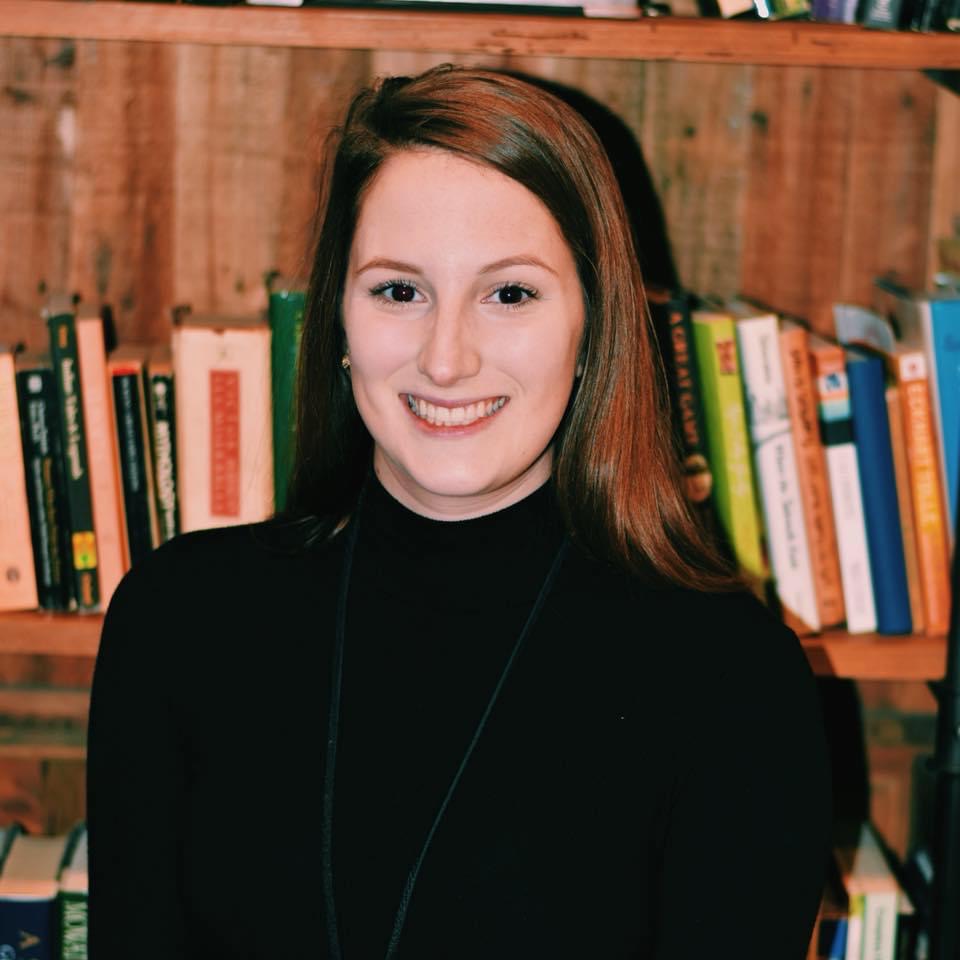
Sophie Ashbrook
Originally from Carbondale, Illinois, Biomedical Engineering student, Sophie Ashbrook, came to MSU because of the warm, family feel of the campus. During the recruitment process, she truly quickly felt at home at MSU. “I wanted to be sure I went to a university where I could build great relationships. Whether it be getting coffee with a classmate or simply walking on campus, I have always felt that I belonged here.” Sophie started as a computer science major, but considering post-graduation opportunities led her to her current path for contributing directly to human health. She knew medical school was not for her, and after talking to her parents and doing a little research, she found the BME degree, housed in ABE.
“After talking to Dr. To, I realized that BME had everything to offer me including a supportive department with professors who care about you. I wouldn’t change my major for the world, and I’ve found that a course mix of math, chemistry, biology, and physics can actually be a lot of fun.”
Sophie’s favorite MSU experience has been building relationships with new people. Among her extracurricular activities, research projects, student worker job, and classes, Sophie has made numerous close friendships in the last three years. “These sweet people have picked me up at my low points and encouraged me, and they have also given me great memories, from tailgating to study sessions. I am forever in love with MSU and the relationships it has given me.” She notes that her biggest struggles have also led her to her greatest successes. Like many engineering students, she says, “It’s hard for me to accept being bad at things, and it’s even harder for me to ask for help from my teachers. When I finally broke down and went to office hours to say, ‘I just don’t get it,’ I was comforted and learned that it was okay.” Outside of academics, Sophie has been heavily involved on campus as a member of the Theta Tau Professional Engineering Fraternity, Engineering Recruitment Leaders, Dr. Simpson’s Cellular Engineering Lab, Society of Women Engineers (SWE), and as a student worker in the Dean of Engineering’s office.
An expectant December 2021 graduate, Sophie wants to go into industry for a while before returning to academia. She ultimately wants to pursue her Ph.D. in Biomedical Engineering in hopes of doing research to better human health. Her interest in academia stems from her ABE professors. She says, “There are so many different personalities in the department. I love Dr. To’s jokes and ability to keep your attention, Dr. Elder’s curiosity and questions that always keep pushing me as a student, Dr. Priddy’s kind heart and amazing knowledge that gives me new ideas every time we talk, and Dr. Simpson’s constant encouragement and ability to make me smile whenever I am having a terrible day. That’s one of the things that drew me strongly to BME; there are many amazing people who want to help you succeed and celebrate your accomplishments with you.”
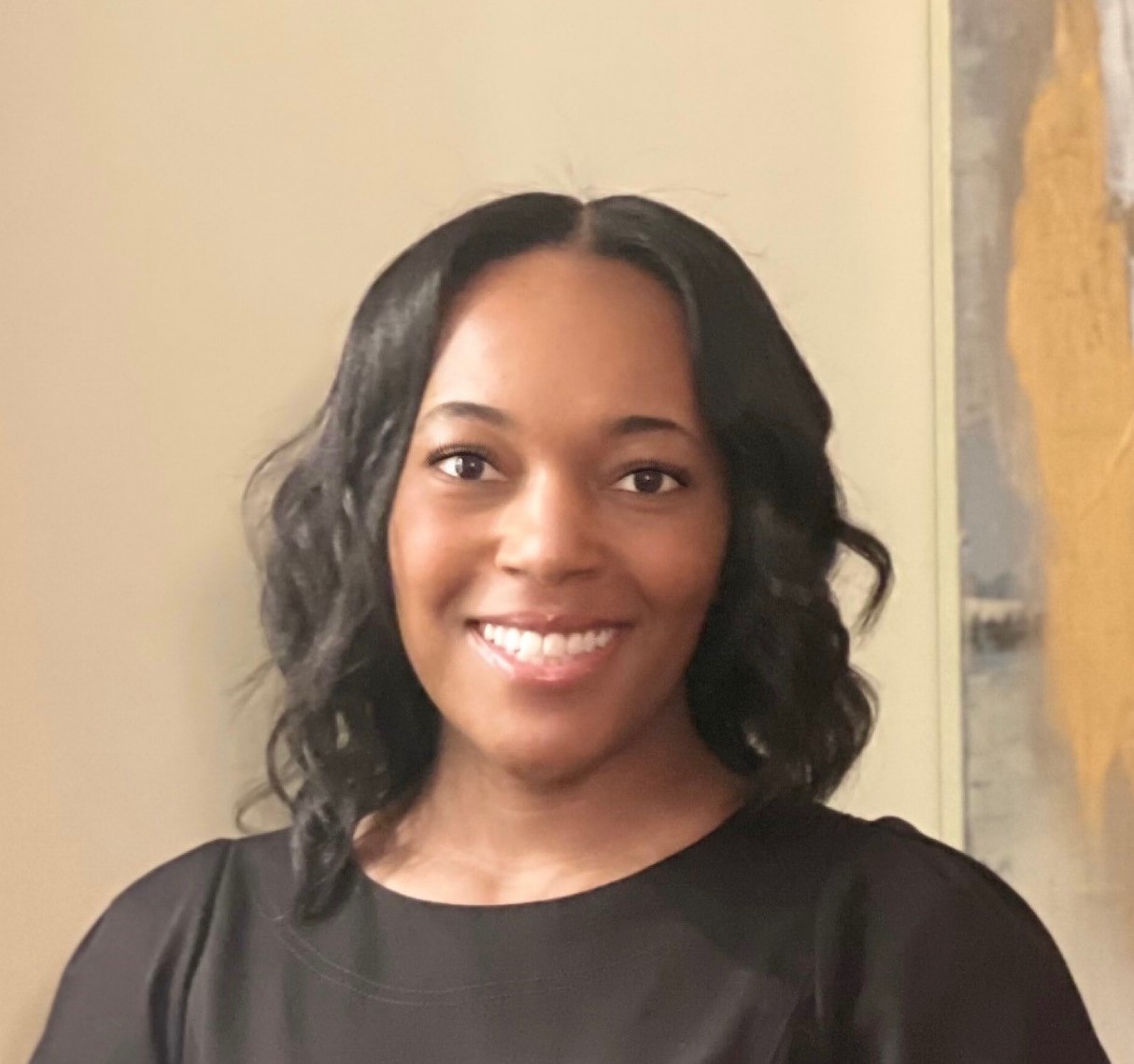
Lauryn Carr
Lauryn Carr, a native of Memphis, Tennessee, came to MSU as a legacy student, her mother, aunt, and cousin having graduated from MSU. Her aunt and cousin were both MSU athletes, so Lauryn grew up coming to Starkville on the weekends for football, basketball, and volleyball games. After touring multiple colleges, Lauryn believes,
“Nothing compares to MSU! When it came time to make a decision, I knew I wanted to be in a true college town with kind people and lots of spirit. MSU had it all including my program of choice, Biomedical Engineering.”
“When thinking about my favorite time at MSU so far, it's impossible to just name one. From giving tours to prospective students as a Roadrunner to volunteering off campus at the J. L. King Center, I have loved learning about Mississippi State and all the wonderful opportunities the campus has to offer, as well as getting plugged into Starkville as a whole.” Lauryn has served in multiple leadership roles including as Fundraising Chair for the National Society of Black Engineers (NSBE), Secretary and now Junior Advisor of Lambda Sigma Honor Society, and Success Networking Teams Coordinator for the National Society of Leadership and Success (NSLS).
Now a junior in BME and a member of the Shackouls Honors College, Lauryn came into biomedical engineering with plans of attending medical school, having shadowed two anesthesiologists her junior year of high school. After studying in the major for a while, she now says, “my plan is to graduate with a degree in biomedical engineering and a minor in sociology before going to law school to become a patent attorney or an intellectual property lawyer.”
Lauryn has explored multiple career options through internships, but the one that cemented her future plans was her internship with a federal judge in Memphis. She found a passion for law and gained insight into how the courts operate. “I learned the duties of a law clerk, including developing orders for compassionate release and various other motions.” After that internship, Lauryn completed an internship with Medtronic that same summer as an engineering intern, where she worked on data analysis and design projects for the Tissue Effect Research and Development team. After graduating with her degree in biomedical engineering, Lauryn will apply her specialized skills and knowledge in pursuit of a law degree.
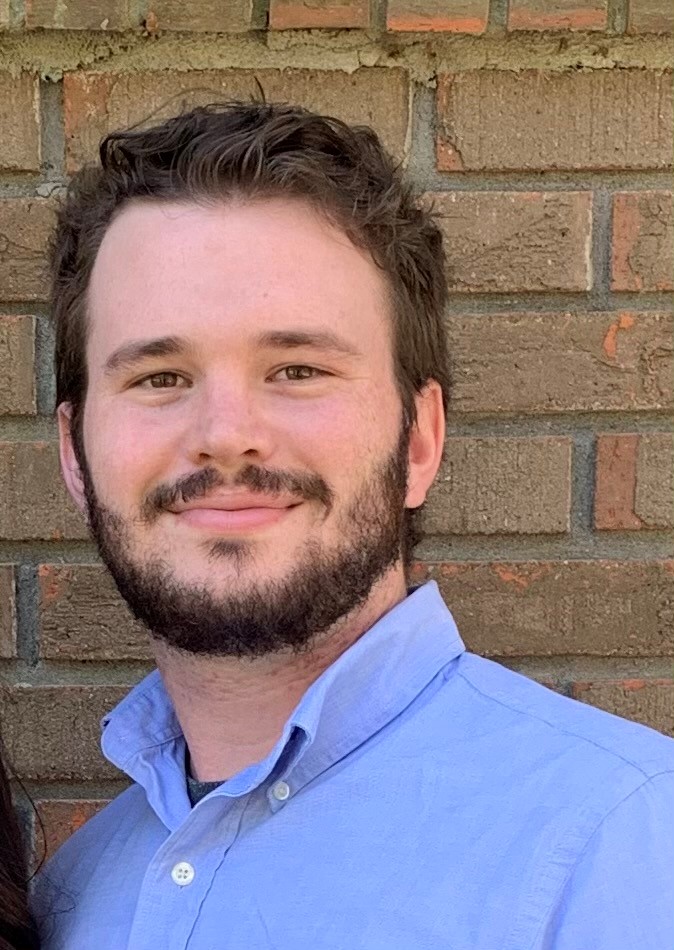
Lucas Gay
Lucas Gay, a native of the rural community of Bremen, Alabama, became interested in Biological Engineering because of his upbringing. He spent most of his childhood working on a farm and became familiar with the delicate balance of ecology and various living systems. He was also fascinated with the systems of the human body, so Biological Engineering was an excellent fit for him.
“My family members have always been MSU fans, and my father and brother both attended the university. Few other schools offered a degree like Biological Engineering."
Lucas is currently pursuing a Master’s degree in BE but came to MSU initially for undergraduate studies. “My family members have always been MSU fans, and my father and brother both attended the university. Few other schools offered a degree like Biological Engineering, and the scholarships I was offered far exceeded offers from other schools. Pair that with a lower cost of attendance, and it just made good sense to attend MSU. In my opinion MSU is one of the most cost-effective major universities in the SEC.”
Since Lucas joined ABE, he says Dr. To has been one of his best professors. “He’s funny at times and always willing to help students.” Lucas’s most enjoyable and informative MSU experience outside of class has been working with the Supplemental Instruction (SI) group, which leads study sessions to help students succeed in difficult courses. He served as an SI Leader for a year before becoming an SI Mentor. Like many other students, Lucas also loves the atmosphere at Dudy Noble Field. “Nothing beats sitting back and watching baseball with some friends and a big bag of peanuts.”
Lucas has also enjoyed performing research as part of his Master’s program. After being offered a Graduate Research Assistantship by Dr. To over a year ago, Lucas is preparing to graduate with his Master’s degree in May 2022. “The lessons learned from seeking out information not found in textbooks and designing experiments to test hypotheses will help me succeed in my future endeavors.” Lucas would like to teach at MSU one day, but his main career goal is performing research in either an academic or business capacity.
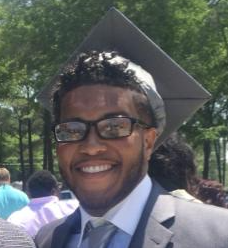
LaDarrius Yates
LaDarrius Yates, a senior in AETB and a native of Woodland, MS, never planned on attending MSU, as his ultimate goal was becoming a nurse. A graduate of Houston High School, LaDarrius grew up spending time with his family, friends, and working on the family farm, a pursuit that was second nature to him. His family had kept horses and farmed cattle and a few crops since he was a baby. “I grew up around animals and farm equipment.” Before graduating from high school, he spent numerous days and nights tending the cattle, working on fences and farm equipment, and working in the hay fields.
"My mind began to think about working the family farm and what other opportunities were available for me.”
After high school he was accepted into a nursing program to pursue his original career aspiration of working as a nurse at St. Jude Children’s Research Hospital in Memphis. However, he quickly realized that nursing school wasn’t what he imagined it to be. After struggling in the nursing program, he “began to question if nursing was the right career path for me. Distraught and hurt, I began to pray and seek God for his guidance. My mind began to think about working the family farm and what other opportunities were available for me.” LaDarrius shared his thoughts with a friend, a former AETB student at MSU, who recommended that LaDarrius contact his former advisor, Dr. Paz. LaDarrius emailed Dr. Paz via the two soon met. “We discussed my background and experiences on the family farm, and he suggested that the AETB program could be a good career choice for me. He gave me a folder of information to read over about the program, and before the start of the summer semester, I was enrolled in MSU’s Agricultural Engineering Technology and Business program, and my journey began. I am happy to say that the journey has been great and I will graduate in December 2021.”
LaDarrius notes that his relationships at MSU have been particularly helpful. “I have gained a group of extended family members through my professors and peers. In the spring of 2021, I lost my sister, Courtney Yates, in a tragic accident. Courtney was also enrolled in the AETB program, and we were both anticipating graduation in December. During that tragic loss, Mississippi State and ABE were right there to support my family and me during this very difficult time. Dr. Paz, Dr. Lowe, and Dr. Chesser even served as pallbearers at my sister’s funeral and that meant more to my family than they will ever know. From this experience alone, I discovered that Mississippi State is much more than a school, it’s a family.”
After graduating in December, LaDarrius hopes to work for a company where he can see his passion for helping people come to fruition. He plans to find employment that enables him to make a positive impact, dealing with agriculture and helping families. “On this educational journey from nursing school to Agriculture Engineering Technology and Business, I have learned that our plans are not always what God has in store for us. I also learned through failures and the ups and downs in life, to never give up, because God’s timing is everything. We must learn to trust God so that he will position us where we need to be when the time is right.” LaDarrius highly recommends the AETB program to anyone who may have an interest in a career in the agriculture industry. He wouldn’t trade anything for his journey at MSU and is proud to be a part of the Bulldog family. “I am thankful for the many experiences and opportunities that have been afforded me by the university. I look forward to my future as an alumnus of MSU.”
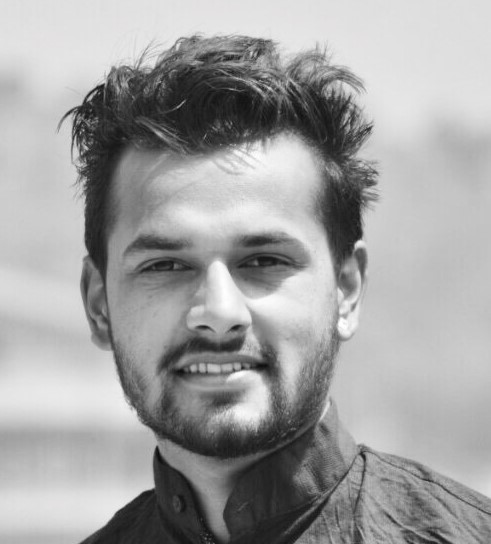
Dipesh Nepal
Dipesh Nepal, a native of Kathmandu, Nepal, completed his Bachelor’s degree in Civil Engineering at Tribhuvan University in Nepal and his Master’s degree in Hydropower Development from the Norwegian University of Science and Technology in Norway before traveling to the United States to pursue a PhD in Biological Engineering. With an academic background in water resources, Dipesh came to MSU because of the opportunity to pursue his research interest in the ABE department.
“I chose Biological Engineering for my PhD because it is an interdisciplinary area that allows me to apply my knowledge of water engineering to assess the impacts of human activities on the environment and learn how to mitigate it.”
His favorite part about being at MSU is the safe, peaceful, and green environment that encompasses the campus. Dipesh describes the university as a freshwater ocean to those who have a thirst for education and knowledge. “You can find all the educational resources you need here. As a PhD student, I can take whatever course I need in my research and utilize different resources across campus. The university receives students from different nations which provides me with the exciting opportunity to exchange my culture with others.” Dipesh has also been involved on campus with students from his home country of Nepal as Vice President of the Nepalese Student Association.
Dipesh has based his research around the impact of land use and climate change on the surface and groundwater quality and quantity. Under the direction of his major professor, Dr. Prem Parajuli, Dipesh has been successful both academically and personally. “Dr. Parajuli’s quality of communication and making every effort to help students has inspired me a lot.” After his PhD defense, Dipesh’s goal is to continue his career in the field of hydrologic/hydraulic modeling while continuing to strive to conserve and improve the environment.
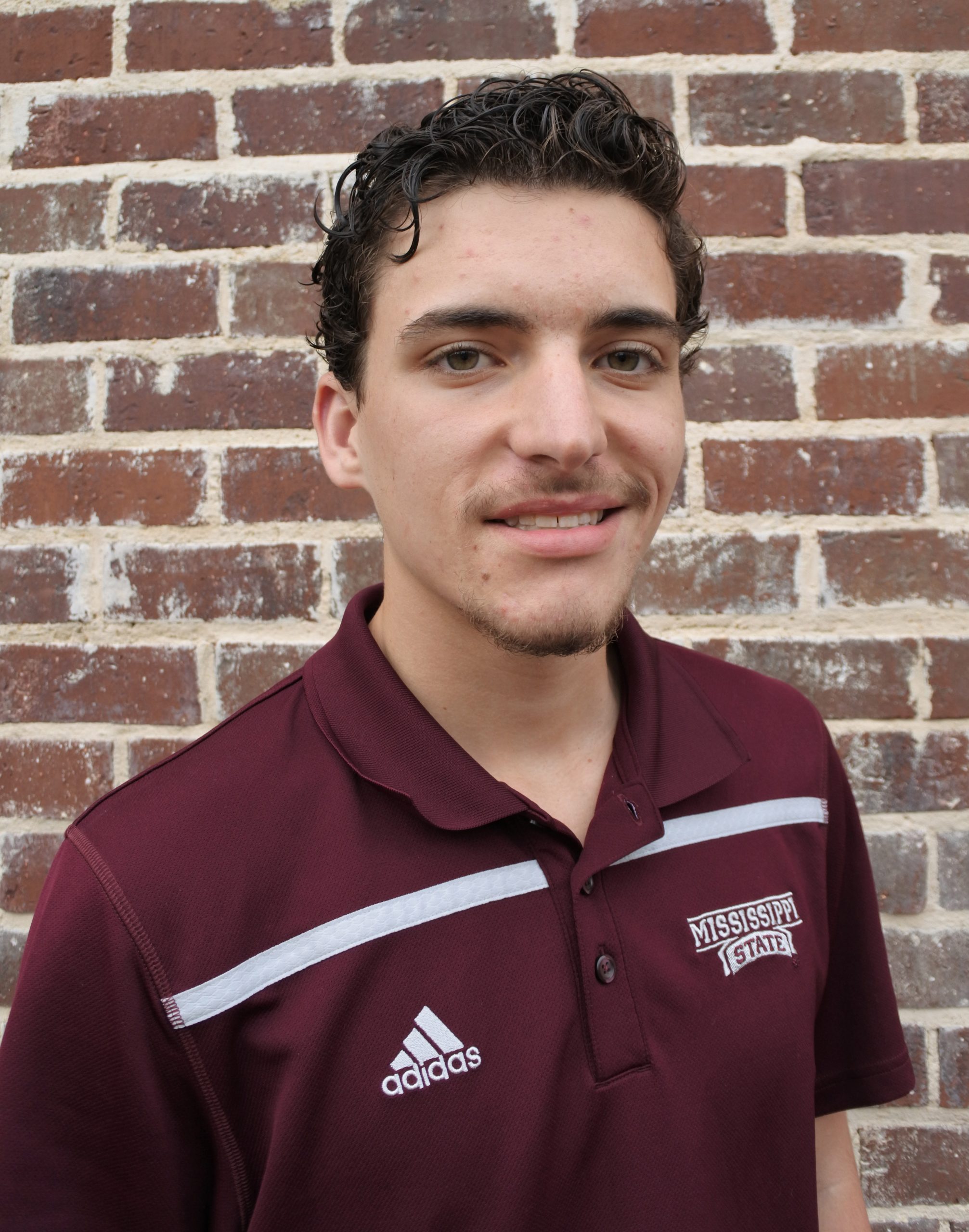
Colby Freeman
Colby Freeman is a second-year student in biological engineering with an environmental focus. Originally from a town outside of Atlanta, Georgia, Colby has learned so much and broadened his horizons during his undergraduate career which has expanded his interests. He came to MSU because of MSU’s extensive agricultural research and has since found his passion within his major.
Colby has been a member of the Energy Club where he is a part of the Solar Decathlon team which has been one of the most rewarding experiences of his time at MSU. With the Energy Club, Colby notes, “We have designed attached housing with solar panels and sustainable technologies to achieve a net-zero energy balance and will compete as finalists in the design competition this upcoming April."
"I applied what I learned in my favorite class, Biosystems Simulation with Dr. Anna Linhoss, to create a simulation giving us data on tank sizing for a rainwater harvesting system to incorporate into the design.”
He believes that this experience has helped him in receiving a research internship with the National Renewable Energy Laboratory for Summer 2021. “There, I will be able to apply the unique combination of biological knowledge and engineering skill I have gained here to code a metabolic model of algae for use in biofuels,” Colby says.
Following graduation next year, Colby hopes to continue researching agriculture, sustainability, and energy systems in graduate school. Colby believes, “Bringing together these issues is the only way we are going to be able to solve them all. I know that as a result of my time here, I will be well prepared for whatever endeavor I choose to pursue.”
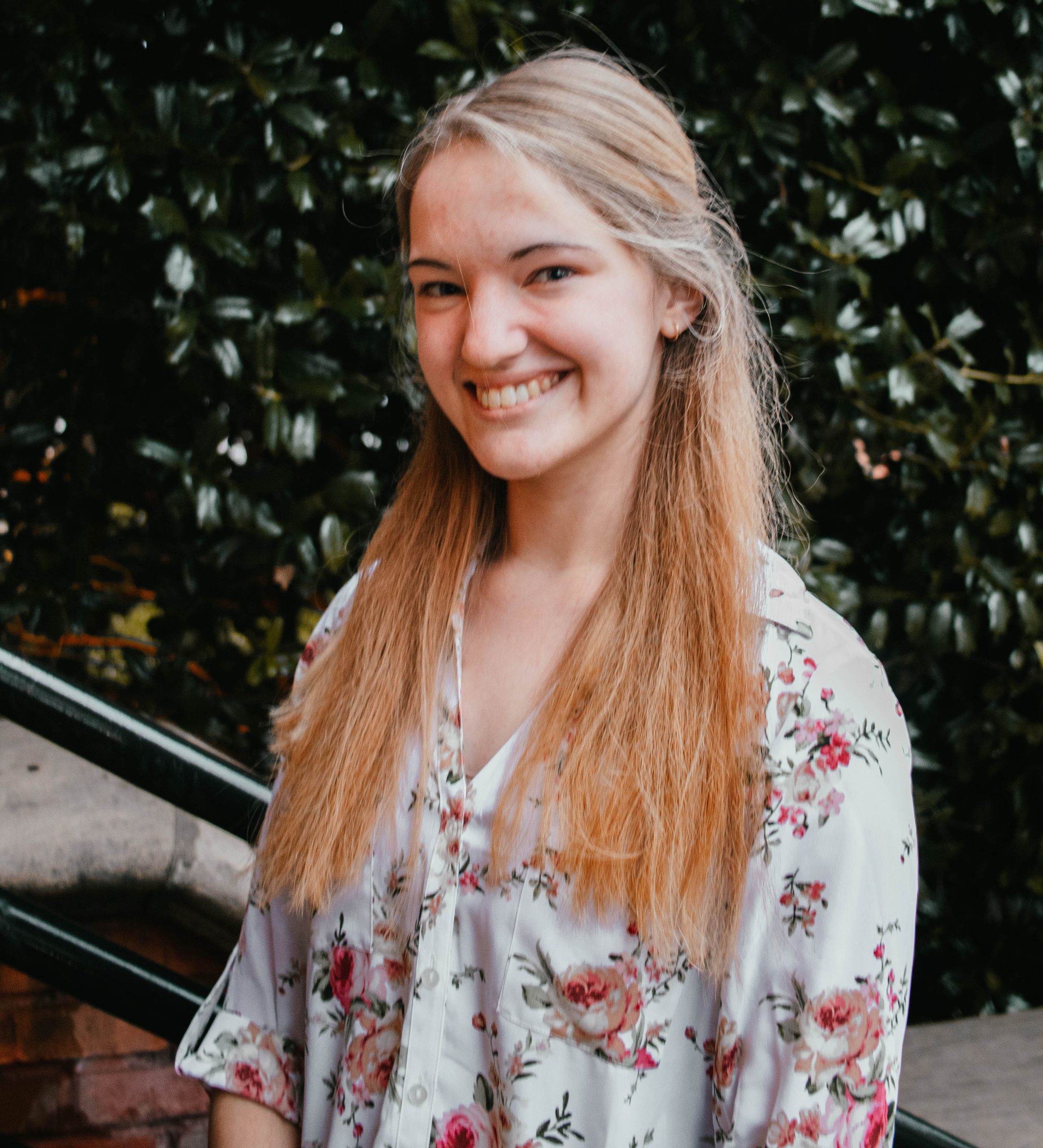
Cristina Griffith
Cristina Griffith is an ABE senior double majoring in Agriculture Engineering Technology and Business (AETB), with the Enterprise Management concentration, and Agribusiness, with the Production concentration, and minoring in Spanish and International Studies in Agriculture. A native of Horn Lake, MS, agriculture has always been Cristina’s passion, making Mississippi State University the obvious university for her.
Cristina chose her major after studying abroad in Santa Marta, Colombia with MSU during Spring Break 2018 with Dr. Gina Rico and Dr. Sandra Guzmán. Having been an Agribusiness major, this was her first exposure to Precision Agriculture. Upon return, she began searching for what opportunities MSU had to offer to further her Precision Agriculture education. Finding AETB, she decided to double major, and she has taken advantage of the academic diversity and broad faculty reach since.
“My favorite part about being in multiple departments is the connections that are made between students and professors."
Cristina says, "I have learned so much from people with different backgrounds and passions; it has definitely helped shape my goals beyond graduation. Dr. Joel Paz and Dr. Randy Little have been so instrumental in helping me balance and succeed in both of my majors.”
Cristina is also a part of The American Society of Agricultural and Biological Engineers (ASABE), Women in Natural Resources, National Agricultural Marketing Association (NAMA), Agricultural Economics Club, and Society of Hispanic Professional Engineers. As a member of multiple organizations, Cristina says, “Not only have department organizations helped me meet older and younger students, but they have given me the opportunity to hear from people in industry, gain advice about graduate school, and have the chance to meet the supporting professor on a more personal level.” She also serves as president of the Soil and Water Conservation Society (SWCS). As a result, the supporting professor of SWCS, Dr. John Ramirez, initiated her semester-long exchange with la Universidad Nacional de Colombia (UNAL) by creating a new partnership between MSU and UNAL, his undergraduate university in Bogotá, Colombia.
Working as an undergraduate researcher, the College of Agriculture and Life Science allowed Cristina to have a professor from each department, Dr. Wes Lowe and Dr. Jeff Johnson, to support her research on the Adoption of Precision Agriculture Technologies by Small Farmers. This experience has been very insightful for her graduate school research in the future. Cristina notes, “I am equally thankful for my internships with Townsend Crop Scouting, Archer Daniels Midland (ADM), and Helena Agri-Enterprises to prepare me for my career after studies.”
After her undergraduate education, Cristina plans to attend graduate school with the ultimate goal of working with international development through Precision Agriculture and business in Latin America. While completing the Precision Agriculture Certificate from the ABE department Cristina decided to earn her FAA Part 107 sUAS license to commercially fly drones from Dr. Amelia Fox's class.
Because of her hard work and dedication, Cristina’s future has begun to take off. She was invited to the XXII Congreso Colombiano, III Congreso APIA Andino de Ingenieros Agrónomos precision agriculture conference with la Universidad del Magdalena to present Uso de Drones en la Agricultura (Use of Drones in Agriculture). She is also thankful to Dr. Ganesh Bora and Dr. Xiaofei Li for their friendship and guidance through international presentation preparation.
Speaking of the ABE department, Cristina says, “The ABE department proves that it cares for their students and every faculty member strives to help students reach their goals. I am thankful for the open-door welcome from each professor and personal relationships built over the years.”
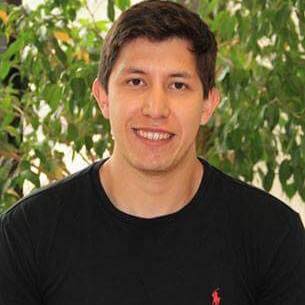
Raul Osorio
Raul Osorio, originally from Quito, Ecuador, is a Ph.D. student majoring in Biological Engineering with a Water Resources concentration. Before coming to MSU, Raul received his bachelor’s degree in Environmental and Development Engineering from Zamorano University in Honduras and his master’s degree in Natural Resources with a Forestry concentration from Kansas State University. Raul came to MSU because of the outstanding reputation of the Bagley College of Engineering and because MSU is a leading research university. Speaking of his choice of major for his Ph.D., Raul says, “I chose Biological Engineering because my career goals have always been oriented to the conservation and restoration of the environment."
"Therefore, I have been interested in understanding and finding solutions to the problems that hydrological systems are facing due to human activities and climate change effects.”
Most importantly, Raul is motivated in finding sustainable engineering solutions to problems related to the everyday changing environment. He says he was fortunate to meet Dr. Anna Linhoss whose research interests and ideal aligned with his.
Raul’s current research project for his Ph.D. focuses on evaluating the efficacy of a coastal restoration technique called marsh terracing in coastal Louisiana, using remote sensing and wave modeling approaches. Marsh terraces are segmented berms of soil that are built in inland, coastal ponds. They are designed to increase marsh area, dissipate wind driven waves, and encourage marsh expansion.
The objectives of his project are 1) assess the longevity of the restoration technique and identify factors related with marsh deposition and erosion using remote sensing; 2) evaluate how marsh terraces reduce wave energy and identify an optimal marsh terrace design using a wave model. Raul is very passionate about his project and says, “The overall goals of the project are to deepen our knowledge on marsh terracing performance and suggest the best implementation practices to restoration organizations to improve the application of this technique with the certainty of achieving their main purpose of reducing wetland loss in Costal Louisiana.”
During his time at MSU, Raul has really enjoyed working in a multidisciplinary project under Dr. Linhoss and other professors and students from other departments. Raul notes, “It is interesting and valuable to hear different inputs from different disciplines trying to solve a common problem. Outside of academics, I love the warm weather, the food in Starkville, and the unique environment during sports events. I also consider myself lucky to have met great people that have become close friends during my PhD program at MSU.” Raul has also been involved on campus. During the fall of 2018 and spring of 2019, he was the graduate representative of MSU’s chapter of the Society of Hispanic and Professional Engineers (SHPE). During 2020, he was the president of MSU’s chapter of the Zamorano Alumni Society. Both experiences were valuable as he acquired leadership and organization skills that help him to succeed during his Ph.D. program.
Raul has also experienced struggles during his time at MSU. He notes, “The major struggle is being far from home. I miss my family and going to the stadium every Sunday to support my soccer team with my dad. However, my wife has been my everyday support here and together we have been able to make Starkville our home away from home.” However, his biggest success he notes is having the opportunity to participate in various scientific conferences during his Ph.D. program. He was able to get two recognitions, one as best oral presentation and a winner of an academic challenge in the Young Coastal Scientists and Engineers Conference (YCSEC) of the Americas in Merida-Mexico in 2018. He also received 1st place in the student oral presentation in the Mississippi Water Resources Conference (MWRC) in Jackson, MS in 2019.
In the future, Raul hopes to become a professor after spending some time working as an environmental conservationist. Raul says, “I come from a family of professors; my mother is university faculty member in Ecuador. Therefore, I hope to follow her steps one day soon. However, I would also like to have some experience working in an environmental conservation organization or NGO, hoping to conduct restoration projects worldwide but most importantly in underdeveloped countries.” Raul plans to use the skills developed during his Ph.D. program to better the environmental and the world around him.
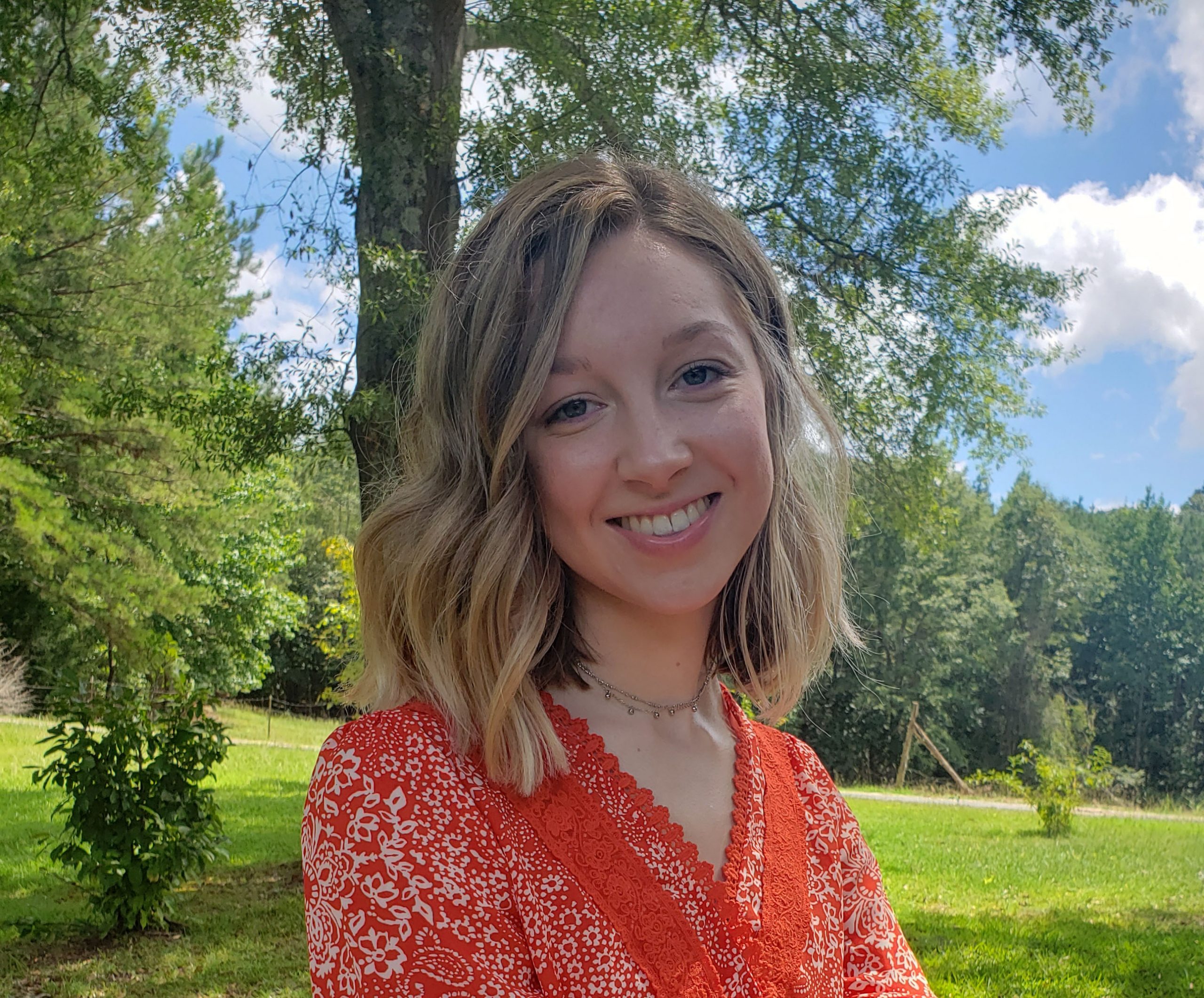
Madison Taylor
Madison Taylor, a native of Fulton, MS, is a senior biomedical engineering student. Madison came to MSU because of the proximity to her hometown and MSU’s reputation as a friendly campus with a family-like student body. Madison was also interested in the new biomedical engineering program and wanted to attend an amazing engineering school. Referencing her choice to major in biomedical engineering, Madison says, “I loved biology, chemistry, and math, but Biomedical Engineering encompasses more than just the study and familiarity of topics; it is the improvement and creation of new medical solutions which involves many fields of study. It is also a very broad area of study, and while I was initially drawn to it because I wanted to learn about prosthetics and medical devices, I was so fascinated to learn about tissue engineering and biomaterials research.”
During her time at MSU, Madison’s favorite part of her undergraduate career has been becoming involved in the Biomedical Engineering Association of MSU (BEAM). She believes that being engaged in this organization has presented her with numerous opportunities and has been the highlight of her college experience.
“I would not be the person I am without it, and it has allowed me to meet and work with so many wonderful people.”
In addition to serving in several officer roles in BEAM such as President, Vice-President and Fundraising/Community Service Chair, Madison has also participated in Global Medical Brigades since 2018 where she is now the Treasurer. Additionally, she has participated in undergraduate research in Dr. Elder’s lab since 2019. She has also completed a bioengineering REU at the University of California San Diego in 2019 and worked as a research assistant with MSU’s Department of Sustainable Bioproducts in 2018.
During her time with the department, Madison notes, “I have two favorite professors, Dr. Simpson and Dr. Elder. Dr. Simpson is our B.E.A.M. advisor, and Dr. Elder is my research advisor. They are two professors that believe in the potential of their students and give them the resources to excel. Anything that I have been able to accomplish is mainly owed to them and what began with their confidence in me.”
Madison notes that her biggest success while at MSU has been her own personal growth. “I pursued all the opportunities that I wanted and worked hard in the ones that were presented to me, and it allowed me to become better and learn so many things. I think that I would have been very surprised if I saw where I am now four years ago,” she says. Madison’s hard work has paid off as she will be graduating in April 2021. She hopes to start in a post-bac position at the National Cancer Institute before she continues her education by applying to dual M.D./Ph.D. programs.
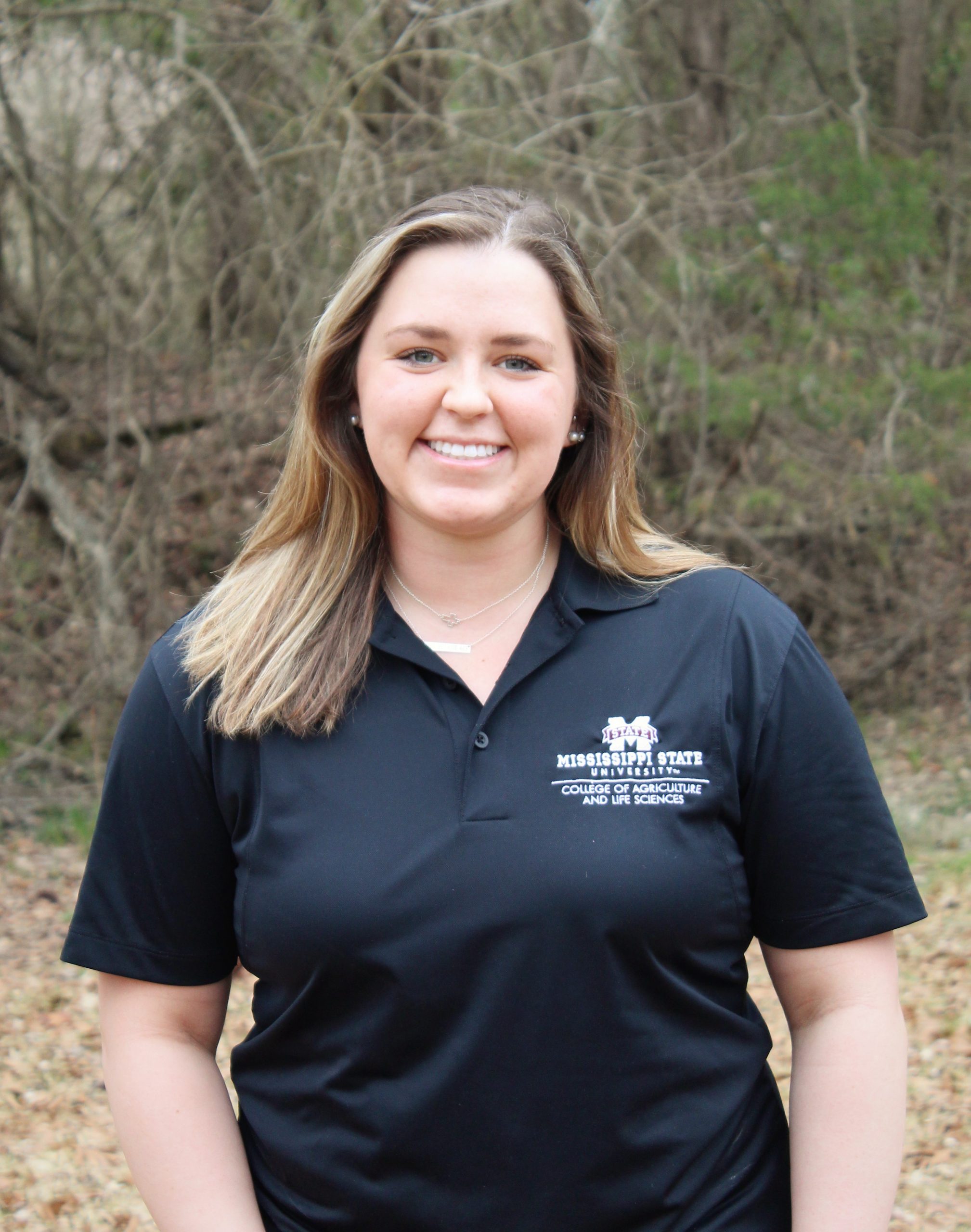
Katelin Waldrep
Katelin Waldrep, a native of Cherokee, Alabama, is a senior in the ABE department pursuing a degree in Agriculture Engineering Technology and Business (AETB) with a concentration in Precision Agriculture. Katelin chose MSU because of its hometown feel and welcoming atmosphere.
Referencing her decision to attend MSU, Katelin says, “Coming from a very small town, I knew that I wanted to be somewhere that I didn’t feel like I was lost in the crowd. The faculty, staff, and students were more down-to-earth than any of the other colleges I toured, especially those that were part of the ABE Department."
"From the start, they always allowed me to feel like an individual rather than just another number.”
Never one to tie herself down to just one option, Katelin chose AETB because of the broad nature of the major. “Through AETB, I am able to learn about the technical side of the agriculture industry while still learning how to run a business efficiently. I love the hands-on experiences that I’m able to take part in and feel as though they have all been very beneficial in preparing me for the workforce,” she says. Katelin believes that AETB allows students to put the material they’ve learned into real life situations, rather than just learning the material for a test. Her passion lies within improving the agriculture industry and helping those farmers who work so hard to feed the world everyday, and she feels as though she is in the right place to do just that.
Outside of her academic studies, Katelin serves as a CALS Ambassador, current 2nd Vice President of Sigma Alpha (a professional agricultural sorority), a member of the collegiate FFA where she has served as both secretary and President, a clinical sciences student worker in the College of Vet Medicine-Animal Health Care clinical, and an undergraduate research assistant with the School of Human Sciences. She also has served as a business and administration student trainee remotely last summer as a part of her internship with U. S. Forestry Service.
Katelin has enjoyed her experience at MSU and is sad to see it come to an end when she graduates in April 2021. In the future, Katelin hopes to use her degree to grow and change the agriculture industry starting with helping farmers run their operations more efficiently as a precision agriculture specialist, crop advisor, or in the research field. Speaking of her future goals, Katelin says, “ I hope to bring light to the agriculture industry in a positive way in order to work towards bridging the gap between producers and consumers, as well as the gap between farmers and digital agriculture. My biggest goal (or dream, rather) is to one day run my own row crop farm and beef cattle operation, so I can have my chance at feeding and clothing the world.”
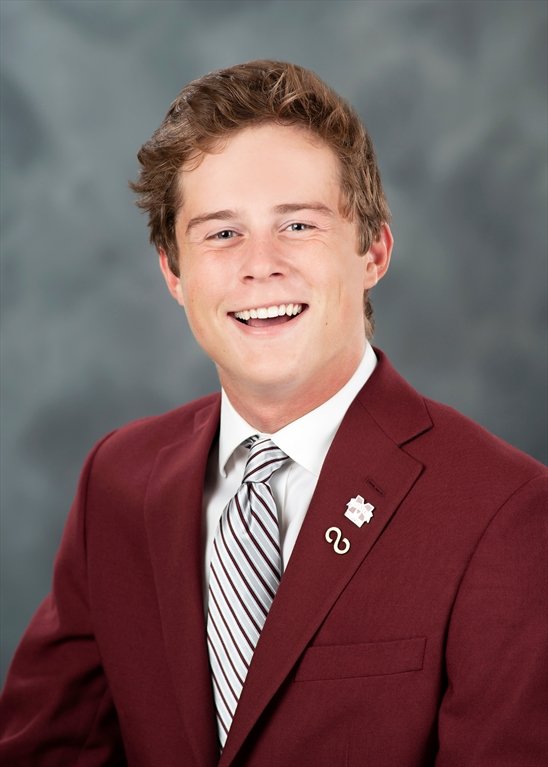
Jay Warren
Jay Warren, a native of Gulfport, MS, came to MSU because of the overall sense of community and the welcoming atmosphere he experienced during his official tour of the campus.
“The sense of community has remained evident throughout my time here, and I know that I made the best decision when choosing where to earn my degree.”
Jay became interested in pursuing a degree in biomedical engineering because it would serve as way to explore his love of math and passion for the sciences while developing and exercising his analytical skills. This degree would serve as a starting point to pursue a degree in medicine.
During his time at MSU, Jay notes, “My favorite part about MSU has been the same thing that brought me to MSU in the first place—the people. I have enjoyed making new friends, interacting with my professors, and navigating my college experience alongside a diverse student body.” MSU has a wealth of opportunities for its students to get involved on campus, and Jay strongly believes that each student can find an organization that aligns with their goals and values. Jay has served on New Maroon Camp staff, where he worked alongside other students to plan and conduct week-long camps for incoming MSU students.
Jay is a member of Alumni Delegates, an organization that serves as the liaison between the Alumni Association and the student body. Jay has also been involved in the Shackouls Honors College as both a Provost Scholar and an Honors Ambassador, and has volunteered in the Starkville community through organizations such as the Brickfire Mentoring Program and Beta Upsilon Chi. Jay believes, “Though students are by no means required to get involved to be successful at MSU, I am confident that the experiences gained through my involvement served to greatly enhance my overall college experience.”
Within the department, Jay names Dr. Steve Elder as his favorite professor in the department who has served as both his research professor and mentor since his sophomore year. Jay says, “Beyond the classroom setting, he has taught me to be a creative, effective researcher, and he has remained a valuable source of guidance and wisdom.”
Jay’s biggest academic success has been the development of a 3D-printed kartogenin-conjugated PLGA scaffold for use in cartilage regeneration. Kartogenin is a compound that has been shown to induce mesenchymal stem cell differentiation into healthy cartilage. His project has focused on integrating kartogenin into a PLGA scaffold, which is commonly used in tissue engineering as a vehicle for drug delivery. This bio-functionalized scaffold could be used as an augmentation to microfracture, which is a common surgical procedure used to treat cartilage deficits. Speaking about his project, Jay notes, “I have been working on the project for about 3 years, and there have been quite a few failures during that time. Throughout the process, I’ve learned to view failure not as an indicator of incapability, but as a powerful motivator and learning tool. The years of work have paid off, and I hope to defend an Honors Thesis on this project later in the spring.”
After graduation in Spring 2021, Jay will be attending the University of Mississippi School of Medicine in Fall 2021. Jay says, “As a physician, I hope to utilize the principles that I have learned in my biomedical engineering curriculum and develop novel methods of healthcare delivery.”
